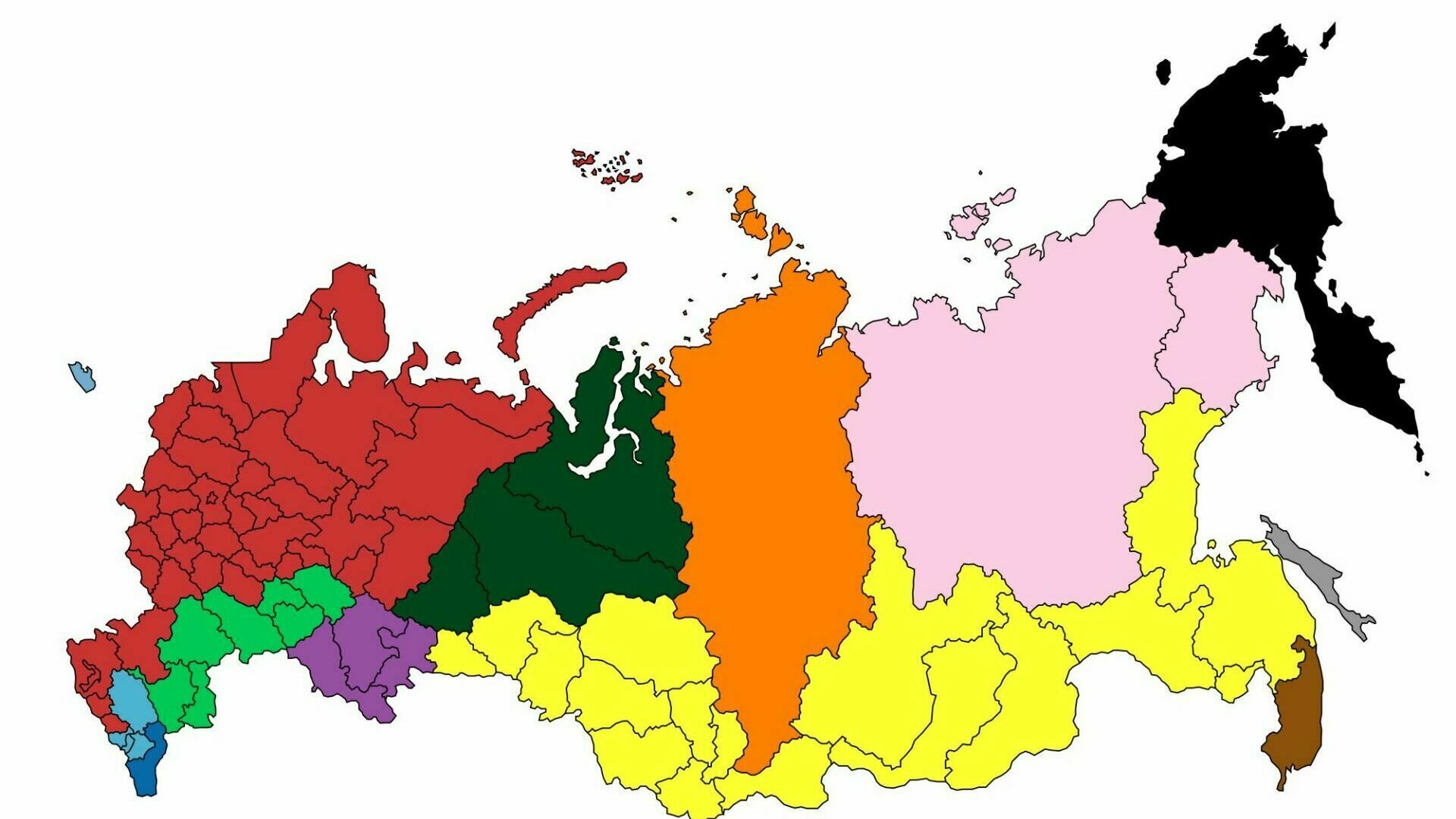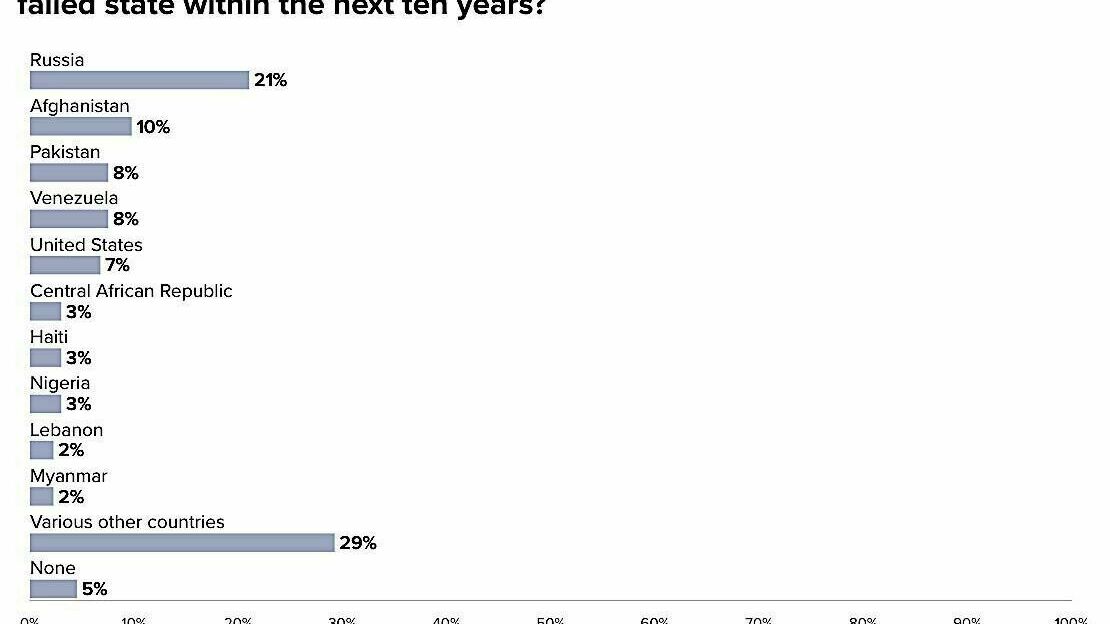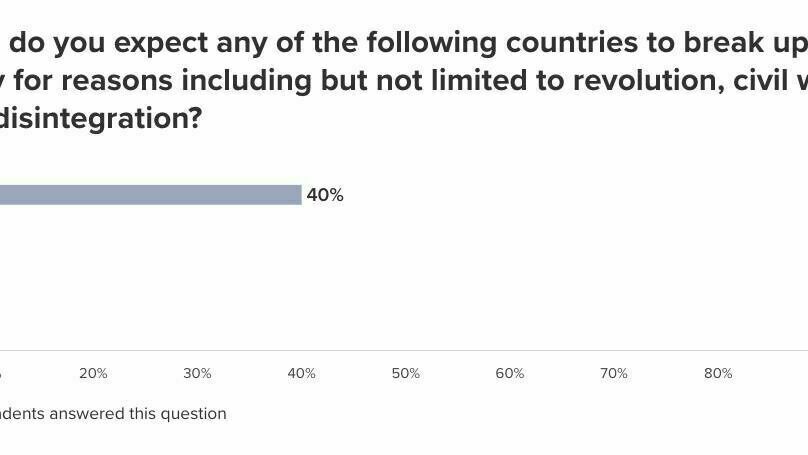Posted 13 января 2023, 12:11
Published 13 января 2023, 12:11
Modified 13 января 2023, 12:51
Updated 13 января 2023, 12:51

Forecast of the day: Western analysts promise our country an imminent collapse
The Scowcroft Center for Strategy and Security (Atlantic Council) has published the results of a large-scale study in which 167 leading global analysts predicted the next decade, sharing their opinions on how geopolitics, climate change, technological upheavals, the global economy, socio-political movements and other areas will look in ten years. This is reported by the influential business publication Financial Times.
The respondents were mostly US citizens (about 60 percent of respondents), but there are also experts from other thirty countries, mainly from Europe.
Respondents work in various fields, including the private sector (26 percent), academic or educational institutions (21 percent), non-profit organizations (19 percent), government (16 percent) and independent consultants or freelancers (13 percent). The survey participants are fairly evenly distributed by age categories over thirty—five years old, respondents aged twenty-two to thirty-five years - less than 10 percent. Men predominate among the respondents.


One of the sections of his report is dedicated to our country and has an intimidating name: "The Russia that we know today will disappear." Experts came to this conclusion after analyzing the most important driving forces of the coming changes.
Analysts have pointed to the possibility of Russia's disintegration over the next decade, suggesting that Russia's intervention in Ukraine could lead to serious upheavals in a great power with the largest arsenal of nuclear weapons on the planet.


Almost half (46%) of respondents expect that by 2033 Russia will either become a failed state or break up. More than one fifth (21%) consider Russia to be the most likely country to become a failed state within the next ten years (Table 2). This is more than twice the percentage for the next most common choice among experts — Afghanistan.
What is even more striking, according to the researchers themselves, is that 40% of respondents expect that by 2033 Russia will fall apart due to revolution, civil war, political disintegration or for some other reason. Europeans are pessimistic about the collapse of Russia: 49% of them foresee such an event, compared with 36% of Americans.
14% of respondents believe that Russia is likely to use nuclear weapons within the next ten years. And among those who expect that in the next decade the country will experience both state collapse and disintegration, already 22% believe that Russia will use nuclear weapons.
At the same time, of those who believe that Russia will face a state collapse or collapse in the next decade, 10 percent all consider the probability that after all the vicissitudes our country will return to the family of world democracies to be the highest among all other modern autocracies (Table 1).